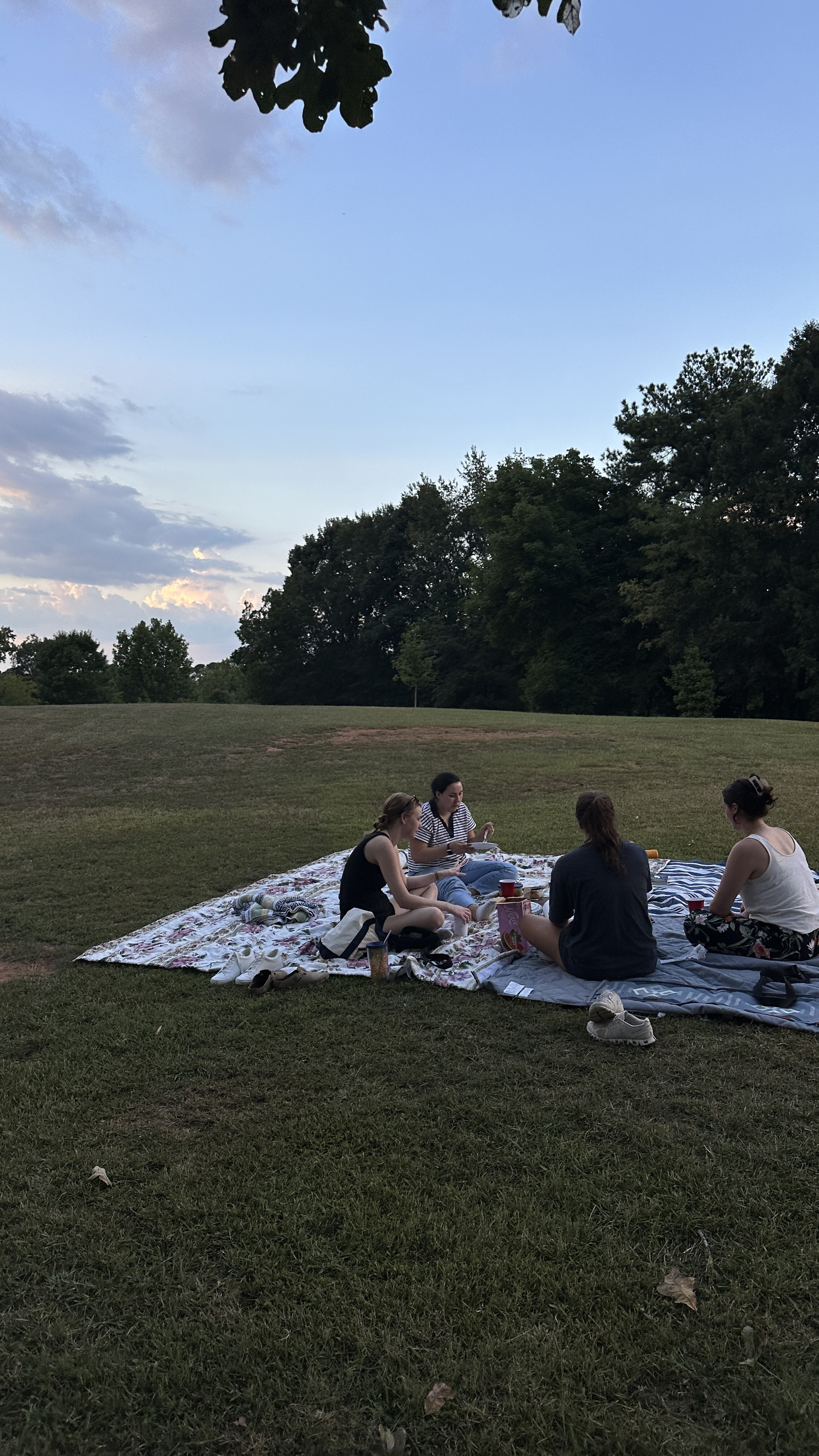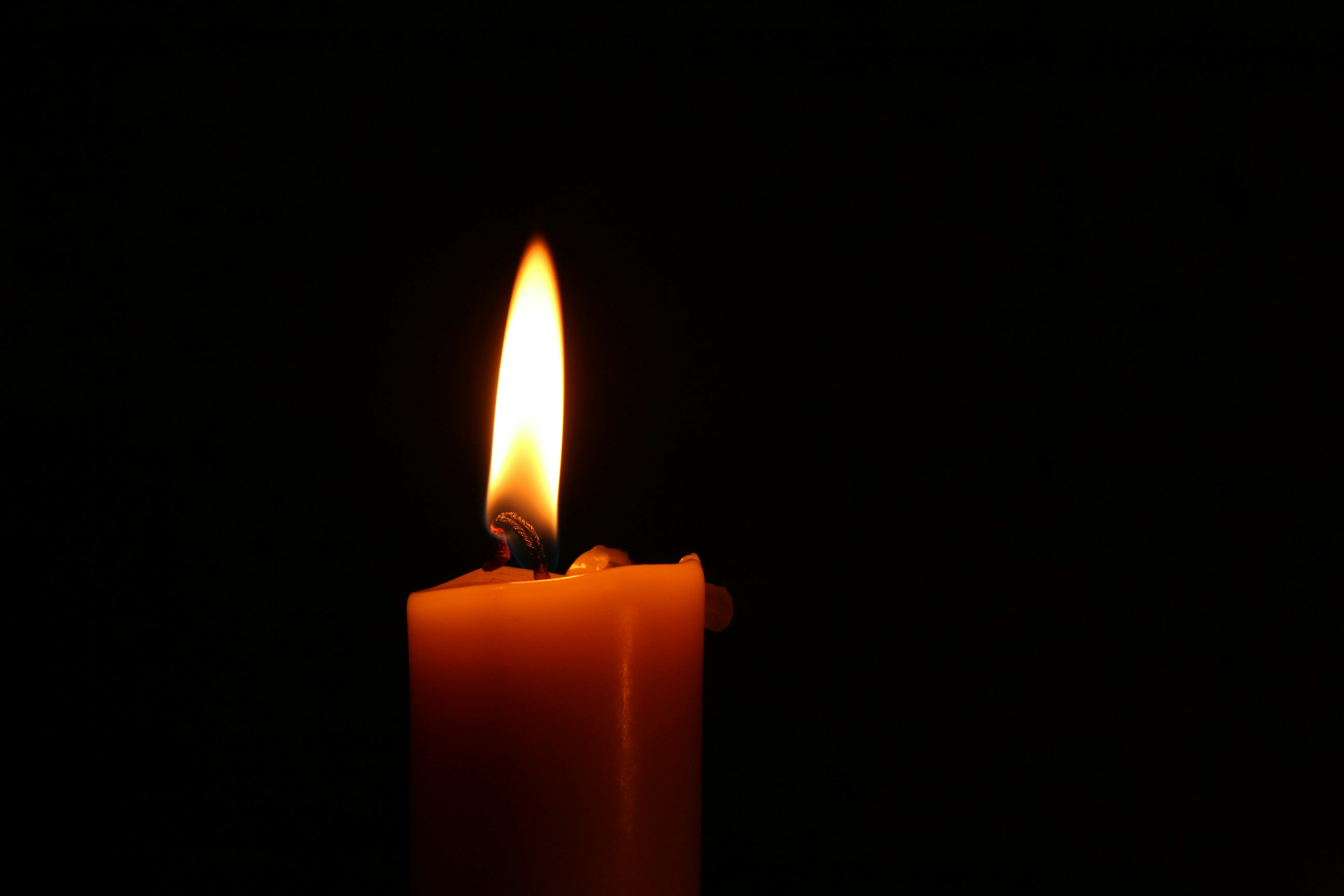
by Mackenzie Matthews on January 29, 2024
How do you determine what is priority in your life?
How do you hold multiple priorities at once?
How do you sense or discern what God is inviting you to step into or out of?
If you’re anything like me, you might know these questions need attention. But when things around you feel urgent and important, you don’t make the space to sift through them.
We are now comfortably in 2024, although you may still accidentally write 2023 in your journal (just me?). But this is the point of the new year when the resolution hype has worn off. Statistically speaking, 43% of Americans quit their planned resolutions by the end of January. I am not a New Year's resolution person, per se. But I am trying to pray over and discern what God is inviting me into in this season. How would he reorder my priorities if he could? And how do we (God and I) discover that together? I do not have that one sorted out yet.
One tool I like to use is to consider the roles that I am in. Official ones, sure. But also the unofficial ones. Then the question to ponder is: What are the priorities of the roles I am in, and am I operating out of those priorities?
Subscribe to the Timberline Church Blog
I remember a previous boss of mine during a planning meeting had each of us write down all of the pieces and parts of our job, then list them out in order based on priority. Then, we were to self-evaluate how we were spending our time based on those priorities. What I found is I would spend far more time making something look cute than I needed or would often be in the weeds for something that was not even a priority part of what I was tasked to do in that role. Then, he had us do the same for our personal life. The things we say are the most important, are we living like they are the most important? Are they reflected in our everyday lives?
As my dear friend Pastor Dick Foth says, “You want to know what someone cares about, look at their calendar and their bank account.”
You will see priorities flush out in how time is spent and how money is spent. Every time.
There is usually a gap between what we say and what we do. What we know our priorities ought to be: Jesus, kale, movement, drinking water, screen-free time, etc. We know this. And yet many people often don’t make those choices.
So the question is, what priorities are you living out of? Are they the ones you want to be? What vision might you have for yourself and your family?
Proverbs 29.18 says, “Where there is no vision the people perish.”
Where I do not have a meal plan, we will without a doubt eat Chick-fil-A for dinner again… right?
But truly, how do you end up where you want to be without a destination in mind? You have to be able to lead yourself first and you cannot lead anyone where you have not been yourself.
Now the way our priorities flush out in our everyday lives is in our rhythms, rituals, and consistent repeated choices made intentionally or not. Our rhythms and rituals and consistent repeated choices form us. I see it with my son Powell. The things that we do repeatedly he becomes accustomed to. I want to be intentional in creating rhythms for us. Because formation happens in repetition. Think about the repetition in your life. Another way to think about this is to assess, “What is normal for you?” What is “normal” in the culture of your life and the spaces you are in?
If you’ve ever gotten close to another family — maybe you married in or you got invited in — I'd bet you could quickly see the differences in how other families operate. I love to see memes about marrying into a ski family or a family that does 5ks for holidays. If you were brought up in a family that watched movies and centered holidays around eating and resting only on those days, this may not be a welcomed tradition. Ha!
Think about even how families eat. Some eat at the table, on the couch, or on the go. Some regularly dine out, others never eat together at all. What is normal for your family? In every category of life, the differences in what is “normal” in families abound.
But whether intentional or not, the repeated rhythms become the culture of a family. What was your family like growing up? What was normal? What is the norm in the spaces you are in now? In your home, your friend groups now? Because those are the things that become the culture of those places and spaces.
I love the way Justin Whitmel Early says it in his book (which I highly recommend) The Habits of the Household:
“The most significant things about any household is what is considered to be normal. Moments aggregate, and they become memories and tradition. Our routines become who we are, become the story and culture of our families.”
What is normal?
Then look at what intentional rituals and rhythms you currently have. Do you have spiritual routines? They’re often called spiritual disciplines. Andy Stanley said years ago in a sermon that often “What starts as a discipline, turns into a habit, that becomes a lifestyle that we couldn’t imagine our life without.”
Ask anyone who loves cycling, or running really far (bless ‘em). These things start out as disciplines and turn into habits that turn into obsessions. Physical fitness is a great example because I can show up to the gym with a terrible attitude. Physical fitness always starts out wildly difficult and unfun. It really feels like a discipline. But I can work my way through squats, lunges, or, heaven help us, the burpees with a terrible attitude. If I do that every day my body will literally be different. I will change and be transformed.
When it comes to spiritual disciplines, the heart follows the habit. When we aren’t intentional our habits will be formed anyway. And our hearts will follow.
What are the habits you have now? What are the habits that are helpful and which are unhelpful?
Again, Justin Whitmel Early says, "By not choosing habits carefully, we are falling back on rhythms that are forming us in all of the usual patterns of unceasing screentime, unending busyness, unrivaled consumerism, unrelenting loneliness, unmitigated addictions, and unparalleled distraction.”
That does seem to be what is normal in our world at this cultural moment.
But it's also normal for Christians. A study of twenty thousand Christians in the United States identified “busyness” as the number one distraction from life with God. Why are we so busy? Why is everyone so busy? It seems like everyone is drowning. It seems as if “busy” is our normal baseline. And busyness is all about our time. Our time management. Our choices, which are undoubtedly linked to our priorities and our habits.
According to Dallas Willard, hurry is the great enemy of spiritual life in our day. He famously responded to the question, “What do I need to do to be spiritually healthy?” by saying, “You must ruthlessly eliminate hurry from your life.”
The author of that study of 20,000 Christians, Michael Zigarelli of Messiah University said this about his findings:
“It may be the case that (1) Christians are assimilating to a culture of busyness, hurry and overload, which leads to (2) God becoming more marginalized in Christians lives, which leads to (3) a deteriorating relationship with God, which leads to (4) Christians becoming even more vulnerable to adopting secular assumptions about how to live, which leads to (5) more conformity to a culture of busyness, hurry and overload. And then the cycle begins again.”
So how do we cultivate spiritual habits that break these patterns of culture? Or, how can we cultivate rhythms of looking at the God who is always looking back at us with love?
What are your rituals? Your normal? And what would you like them to be?
I love the way C.S. Lewis said, “We must lay before Him what is in us, not what ought to be in us.” Another way of saying the best place to start is just to start. That is one of the reasons I love calling spiritual disciplines spiritual practices. Because we do practice, and practice involves giving it a go. Just giving it a try.
If I could recommend another book, I would highly recommend the book about prayer called “Praying Like Monks and Living Like Fools” by Tyler Staton. When it comes to prayer he says, “Prayer is more practice than theory.” Other notable leaders in this arena agree.
Richard Foster: “By praying we learn to pray”
Thomas Merton: “If you want a life of prayer, the way to get there is by praying”
Mother Teresa: “If we really mean to pray and want to pray we must be ready to do it now.”
We make time for the things we want to make time for, and we get to decide how intentional we want to be with that; while knowing that we can be intentional but we also must be flexible. One saying repeated often in my time at Timberline has been “Blessed are the flexible, for they will not break.” If we become too rigid with our schedules and plans, we will break when the unexpected happens. Tyler Staton noted this about Jesus: “Jesus was intentional, and yet he was equally interruptible.”
So today, consider what the priorities are in the roles you find yourself in. Then inventory the culture of the spaces you are in by identifying what is “normal.” What rituals, rhythms, or habits do you have? And in what areas can you lead your heart by engaging in spiritual practices?
May we follow Jesus’ example by being intentional yet interruptible.




